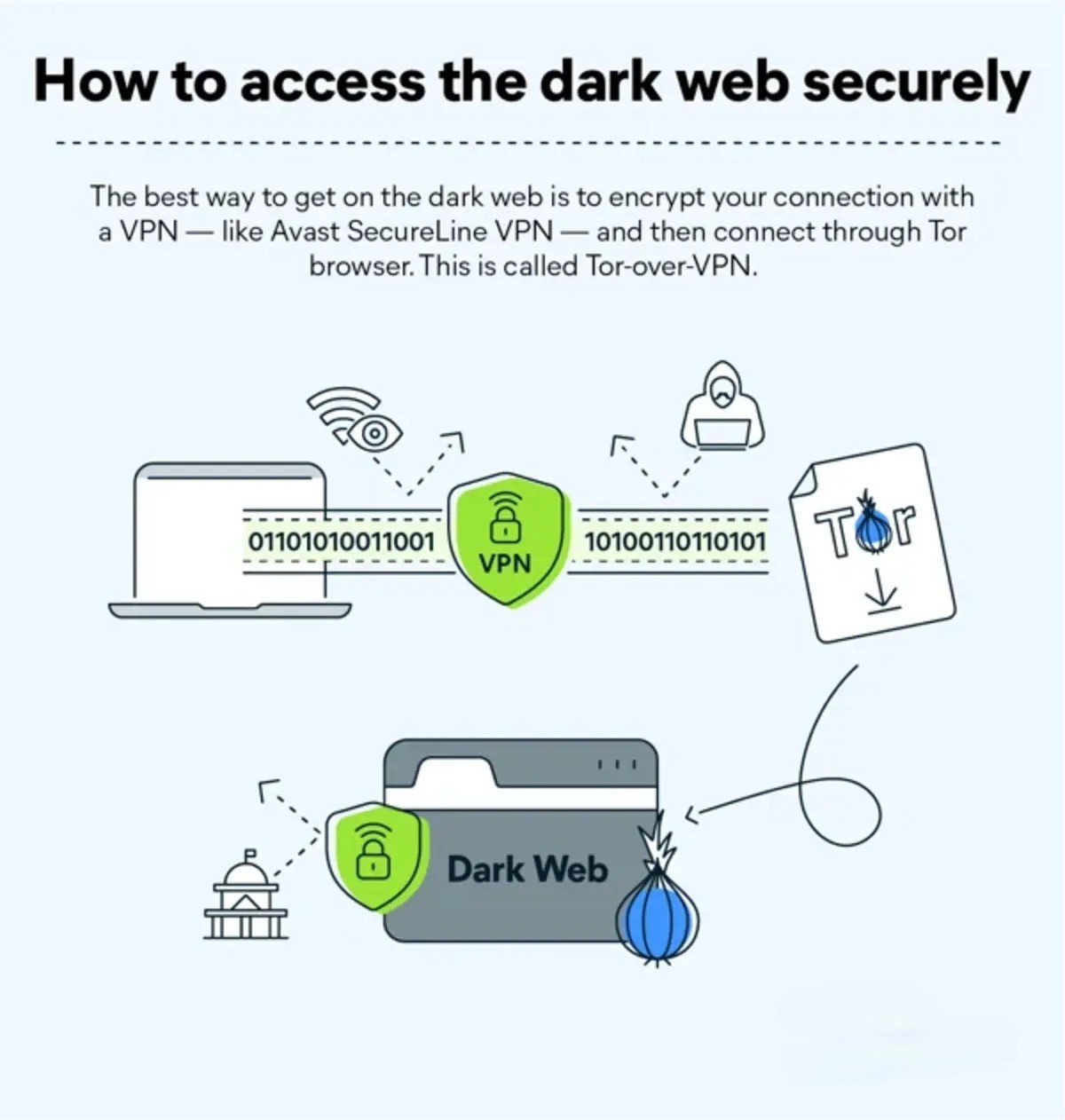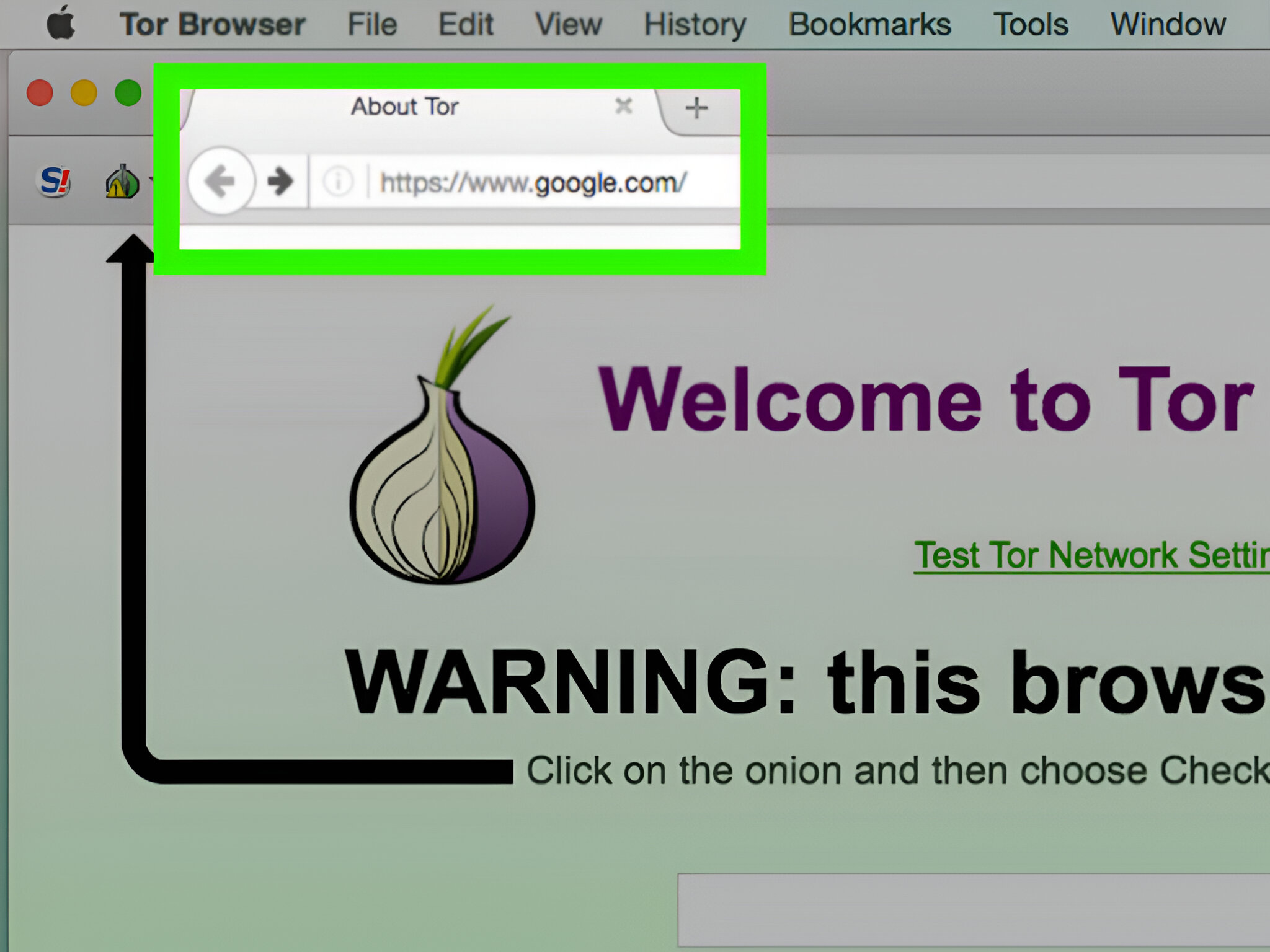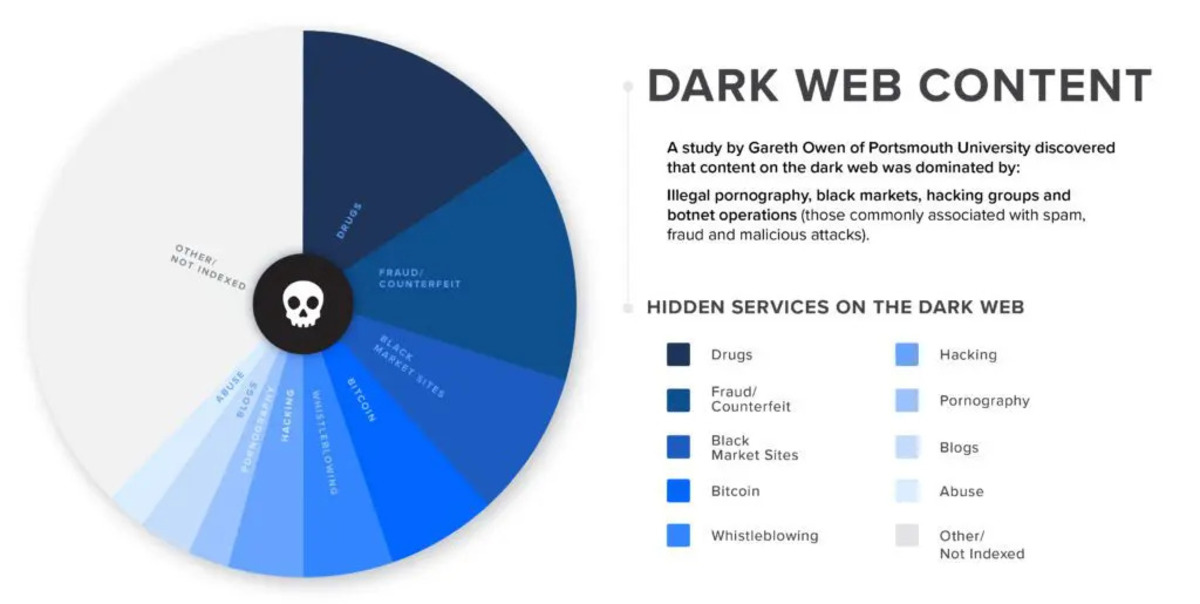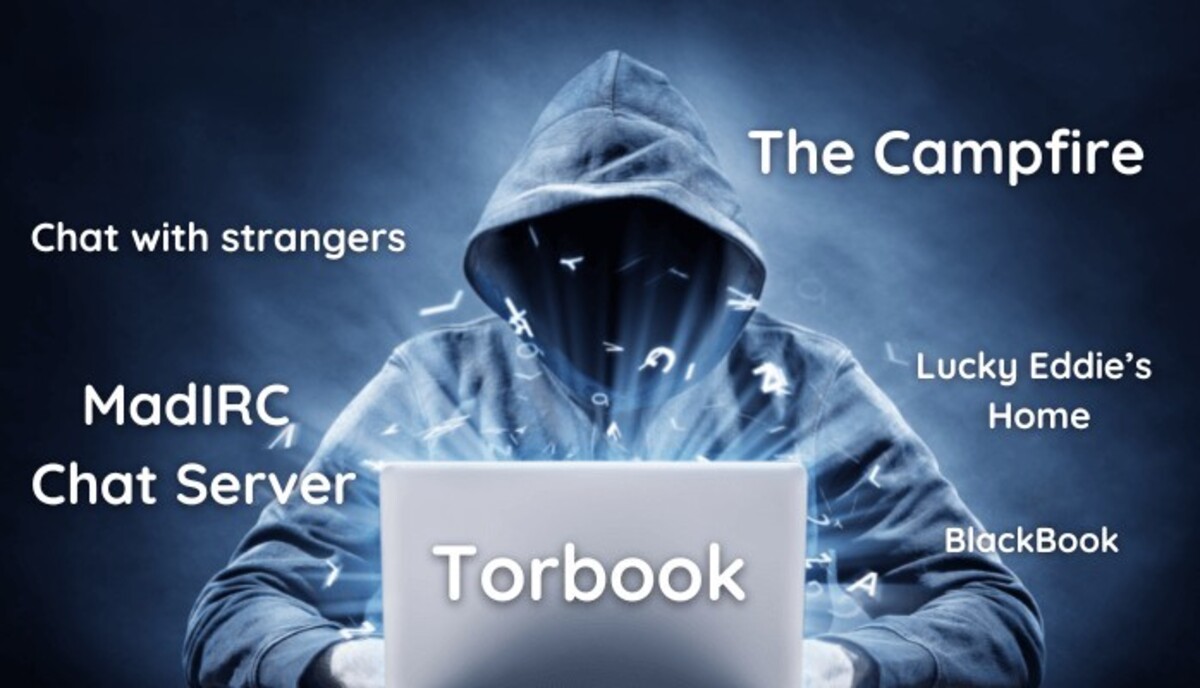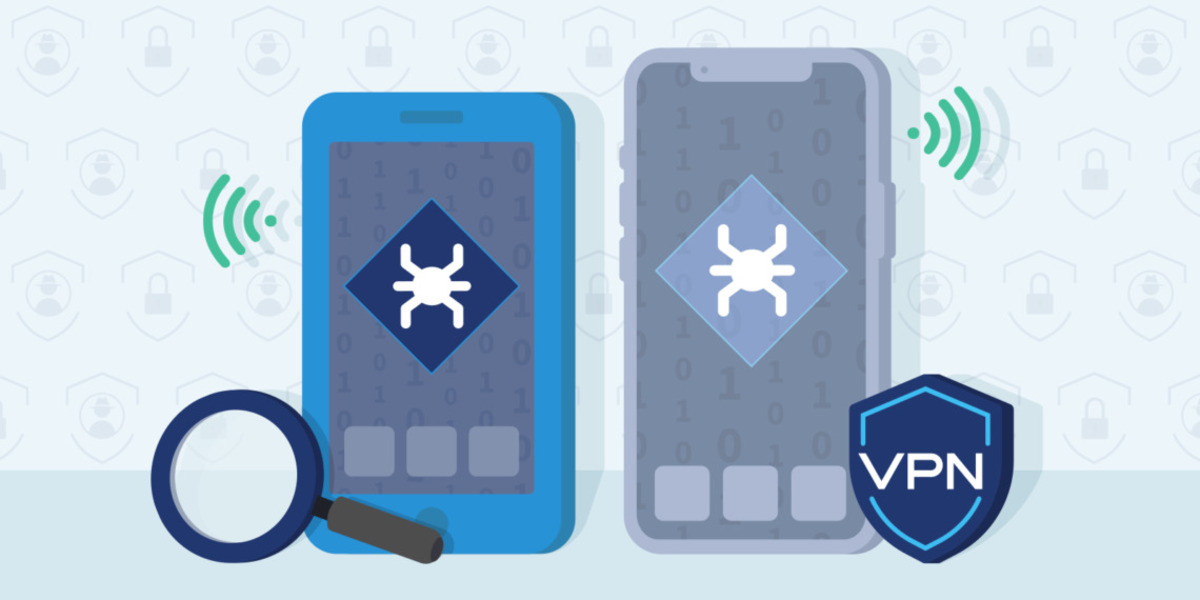Introduction
Welcome to the mysterious and enigmatic world of the Dark Web. It is a realm that has piqued the curiosity of many, offering a hidden network of websites that exist beyond the surface of the everyday internet. This hidden network has garnered attention for being a breeding ground for illicit activities, but it also provides a platform for freedom of expression, privacy, and anonymity. In this article, we will delve into the depths of the Dark Web, exploring its definition, its intricacies, and the steps to access it.
The Dark Web, also known as the Darknet, is a part of the internet that is not indexed by search engines and requires special software and configurations to access. It is a parallel network to the surface web that we use every day, consisting of websites that are intentionally hidden and protected. These sites cannot be accessed through traditional browsers like Google Chrome or Mozilla Firefox. Instead, they are accessed using specific software that provides anonymity and encryption.
Understanding the Dark Web can be a fascinating yet challenging endeavor. It is crucial to navigate this realm with caution and knowledge to avoid potential risks. While the Dark Web is often associated with illegal activities, it is not inherently malicious. Many legitimate reasons exist for venturing into the darker side of the internet, such as researchers exploring online communities, journalists protecting their sources, or individuals seeking to safeguard their privacy.
To access the Dark Web securely and anonymously, it is essential to employ specialized software and practices that safeguard your identity. The most commonly used software for accessing the Dark Web is the Tor browser, which enables users to browse websites anonymously and encrypt their connections. Tor stands for “The Onion Router,” referencing the multiple layers of security that it employs to protect users’ privacy. By routing your internet traffic through a network of volunteer-operated servers, Tor helps to obfuscate your identity and location.
In the following sections, we will take a deeper look at the steps required to access the Dark Web using the Tor browser and the precautions you should take to ensure your safety. We will also discuss the concept of Dark Web marketplaces, where various illicit goods and services are traded. Additionally, we will address the legal implications associated with Dark Web browsing to provide a comprehensive understanding of this hidden digital realm.
What is the Dark Web?
The Dark Web is a segment of the internet that is intentionally hidden and requires special software to access. It is a subsection of the Deep Web, which encompasses all web content not indexed by search engines. While the Deep Web consists of legitimate websites like private databases and password-protected sites, the Dark Web is known for its hidden activities and anonymity.
The Dark Web operates on a network called Tor, which stands for “The Onion Router.” This network is designed to provide anonymity by encrypting and routing internet traffic through multiple servers, making it difficult to trace a user’s identity or location. Tor utilizes layered encryption, similar to the layers of an onion, hence the name “Onion Router.”
The Dark Web ecosystem consists of websites that end with the “.onion” domain, which is not accessible through traditional web browsers. These websites have unique URLs that are only reachable by using the Tor browser. The “.onion” domain is derived from the way the Tor network routes traffic, adding an additional layer of anonymity to the websites hosted on it.
One of the misconceptions about the Dark Web is that it is entirely nefarious. While it is true that illicit activities do take place on the Dark Web, such as the sale of drugs, weapons, and stolen data, there are also legitimate uses for this hidden network. Whistleblowers, journalists, activists, and political dissidents often rely on the Dark Web to communicate securely and protect their identities. The Dark Web can provide an avenue for free speech and privacy in places where their rights are restricted.
It is important to note that not all activities on the Dark Web are illegal. There are communities and forums focused on various topics, including technology, privacy, cryptography, and more. Some websites on the Dark Web offer legal services, such as secure email providers, encrypted messaging platforms, and anonymous publishing platforms.
However, the anonymity provided by the Dark Web also attracts criminal elements. Darknet marketplaces, such as the infamous Silk Road, have gained notoriety for facilitating the trade of drugs, counterfeit money, hacking tools, and other illegal goods and services. These marketplaces operate using cryptocurrencies like Bitcoin to ensure anonymity in financial transactions.
Understanding the Dark Web is crucial to navigate this hidden realm safely. By arming ourselves with knowledge and taking necessary precautions, we can explore the Dark Web for legitimate purposes while avoiding the potential dangers associated with illegal activities.
Understanding the Dark Web
Exploring the Dark Web requires a deeper understanding of its structure and operation. Unlike the surface web, which is easily accessible through search engines, the Dark Web is intentionally hidden and relies on specialized software, such as the Tor browser, to access its content.
The Dark Web operates on a decentralized network, making it challenging to track and regulate. Its infrastructure is designed to provide privacy and anonymity to its users, shielding their online activities from surveillance and potential monitoring by governments or other entities. This aspect appeals to individuals who seek to protect their identities, evade censorship, and maintain their privacy.
One of the key features of the Dark Web is its use of encryption. Communication and data transmission on the Dark Web are encrypted, making it significantly more difficult to intercept and decipher. Encryption ensures the confidentiality of information exchanged on the platform and adds an extra layer of protection for users.
Another factor that sets the Dark Web apart is its reliance on anonymous currencies, primarily cryptocurrencies like Bitcoin. These digital currencies allow for discreet financial transactions, making it challenging to trace the flow of money within the Dark Web. This feature is particularly attractive to those engaging in illicit activities, as it helps maintain their anonymity and avoids traditional financial institutions’ scrutiny.
The content found on the Dark Web varies significantly. While it does have its fair share of illicit activities, including the sale of drugs, hacking services, and stolen data, the hidden network also hosts a range of legitimate content and services. Whistleblower platforms, anonymous forums, and private community discussion boards can be found on the Dark Web. These platforms provide a space for individuals to express themselves freely, discuss sensitive topics, and share information without fear of reprisal.
However, it is crucial to approach the Dark Web with caution. The anonymity and lack of oversight can make it a breeding ground for malicious individuals and criminal activities. Scams, malware, and fraudulent services are prevalent, and users must be vigilant to protect themselves from potential harm.
It is essential to note that accessing and using the Dark Web may be illegal or restricted in some jurisdictions. Users should familiarize themselves with the laws and regulations of their country to avoid unintentionally engaging in illegal activities.
Understanding the complexities of the Dark Web allows users to navigate its hidden corners responsibly. By being aware of the risks, safeguards, and overall landscape of the Dark Web, individuals can make informed decisions about their involvement and protect themselves in this unconventional digital realm.
Ensuring Anonymity
When venturing into the Dark Web, anonymity becomes a crucial aspect to safeguard your identity and privacy. As the Dark Web operates on the principle of anonymity, it is essential to take certain precautions to ensure your online activities remain untraceable.
The first and most important step in maintaining anonymity on the Dark Web is using the Tor browser. Tor routes your internet traffic through a network of volunteer-operated servers, obscuring your IP address and making it difficult for anyone to track your online activities. It is essential to download the Tor browser directly from the official Tor Project website to avoid downloading potentially malicious versions from other sources.
Alongside using the Tor browser, it is recommended to utilize a reliable virtual private network (VPN) to further enhance your anonymity. A VPN creates an encrypted tunnel between your device and the internet, preventing third parties from monitoring your online activities. By connecting to a VPN server before accessing the Tor network, you add an extra layer of protection and make it even more challenging for anyone to trace your connection.
When using the Dark Web, it is important to refrain from using any personal information that could potentially identify you. Avoid using your real name, email address, or any personal accounts linked to your real identity. Create new, anonymous accounts specifically for Dark Web activities, using aliases or pseudonyms instead of your real name.
Furthermore, exercise caution when interacting with others on the Dark Web. Keep in mind that not everyone may have good intentions. Avoid providing personal information or engaging in discussions that could potentially compromise your identity. Treat the Dark Web as an anonymous space and ensure your interactions reflect the same level of caution and anonymity.
One aspect to consider is the potential risks associated with downloading files or accessing unknown websites on the Dark Web. Malware and other malicious software can pose a significant threat to your anonymity and the security of your device. It is advisable to refrain from downloading files from unverified sources and to use reputable antivirus software to scan any files you do download.
Lastly, regular updates and maintaining good security practices on your device are essential. Keeping your operating system, software, and antivirus programs up to date helps protect against potential vulnerabilities that could be exploited by malicious actors on the Dark Web.
Remember that while these precautions can significantly enhance your anonymity on the Dark Web, no method is foolproof. It is always wise to exercise caution and be aware of the potential risks involved.
By following these measures, you can navigate the Dark Web with an added layer of anonymity, ensuring your online activities remain private and secure.
Tor Browser: Your Gateway to the Dark Web
When it comes to accessing the Dark Web, the Tor browser is the go-to tool for ensuring both anonymity and security. The Tor browser acts as the gateway that allows users to explore the hidden depths of the internet without revealing their identity or location.
The Tor browser, short for “The Onion Router,” is a modified version of Mozilla Firefox that has been customized to provide users with a high level of privacy and encryption. It leverages the Tor network, a decentralized and volunteer-operated network that routes internet traffic through a series of encrypted relays.
One of the key features of the Tor browser is its ability to conceal a user’s IP address, making it difficult for anyone to trace their online activities. Instead of a direct connection to websites, the Tor browser routes the user’s traffic through multiple relays, encrypting the data at each step. This multi-layered encryption ensures that no single relay knows the user’s complete path or the destination they are accessing, providing a high level of anonymity.
By bouncing the user’s internet traffic through random relays across the globe, the Tor browser makes it challenging for anyone monitoring the network to pinpoint the user’s location or monitor their online activities. This feature is especially crucial when accessing the Dark Web, as it is designed to protect users from potential surveillance and censorship.
Another benefit of the Tor browser is its ability to access both the surface web and the Dark Web. While the primary purpose of the Tor browser is to provide anonymity on the Dark Web, it can also be used to access regular websites. However, it is important to note that the Tor browser may be significantly slower than traditional browsers due to the multiple relays and encryption methods employed to protect user privacy.
Using the Tor browser is relatively straightforward. After downloading and installing the Tor browser from the official Tor Project website, users simply need to launch the browser and wait for it to establish a connection to the Tor network. Once connected, they can start browsing the web anonymously.
However, it is crucial to remember that the Tor browser, while excellent for maintaining anonymity, is not a guarantee of absolute security. It is still possible for advanced adversaries or government agencies to track and identify users engaging in certain activities on the Dark Web.
Therefore, it is important to follow additional security measures, such as using a reliable VPN and practicing good browsing habits, to further enhance your privacy and protect yourself while using the Tor browser.
The Tor browser serves as an essential tool for exploring the Dark Web and maintaining your anonymity. By leveraging the power of the Tor network and its multi-layered encryption, the Tor browser allows users to access the hidden depths of the internet with confidence, ensuring their online activities remain private and secure.
Steps to Access the Dark Web
Accessing the Dark Web requires specific steps and tools to navigate its hidden network securely and anonymously. By following these steps, you can explore the depths of the Dark Web and maintain your privacy.
The first step in accessing the Dark Web is to download and install the Tor browser. Visit the official Tor Project website, where you can find the latest version of the Tor browser for your operating system. Download the appropriate version and follow the installation instructions provided.
Once you have installed the Tor browser, launch the application and wait for it to establish a connection to the Tor network. The Tor browser will automatically connect to the network and configure itself for optimal anonymity. It might take a few moments for the connection to be established, so be patient.
Once the connection is established, you can start using the Tor browser to access the Dark Web. You can do this by entering the URL of a specific “.onion” website directly into the browser’s address bar. “.onion” sites are unique to the Dark Web and are not accessible through traditional browsers. It is vital to note that not all “.onion” sites are reliable or legal, so exercise caution and do thorough research before accessing any specific website.
Another option for accessing the Dark Web is using directories and search engines specifically designed for this purpose. These directories provide a list of curated sites on the Dark Web, categorizing them into different topics. By using these directories, you can navigate the Dark Web more easily and find websites that align with your interests.
It is important to note that navigating the Dark Web can be different from browsing the surface web. Websites on the Dark Web may have unconventional layouts and may take longer to load due to the nature of the Tor network. Patience is key when accessing the Dark Web, as it may take some time for websites to respond.
While accessing the Dark Web, it is essential to practice good browsing habits, such as avoiding clicking on suspicious links or downloading files from untrusted sources. Malicious actors may attempt to exploit vulnerabilities or trick users into revealing their identity or infecting their devices with malware.
Lastly, always remember to prioritize your safety and maintain awareness of potential risks. The Dark Web is known for hosting illicit activities and dangerous individuals. Use common sense, protect your personal information, and be cautious when interacting with others on the Dark Web.
By following these steps and exercising caution, you can explore the Dark Web securely and anonymously, allowing you to delve into a hidden world that offers both intrigue and potential risks.
Exploring Dark Web Marketplaces
One of the notable aspects of the Dark Web is the presence of darknet marketplaces. These marketplaces are underground platforms where various goods and services are bought and sold, often involving illicit activities and anonymity. Exploring these darknet marketplaces can provide a glimpse into the hidden economy of the Dark Web.
Dark web marketplaces operate similarly to e-commerce platforms on the surface web but with an added layer of secrecy. They allow users to buy and sell a wide range of products and services, including drugs, weapons, counterfeit currency, hacking tools, and stolen data. These marketplaces often use cryptocurrencies like Bitcoin for transactions to ensure anonymity and make it difficult to trace financial flows.
When accessing dark web marketplaces, it is crucial to exercise caution and be aware of the potential risks involved. While some marketplaces claim to prioritize user safety and product quality, they are predominantly unregulated, and scammers and unreliable vendors can be prevalent. It is advisable to thoroughly research the marketplace you intend to use, read user reviews, and exercise skepticism when dealing with unknown vendors.
Within darknet marketplaces, vendors often operate under pseudonyms and may use encryption methods to protect the privacy and security of their transactions. Communication and order placements typically occur through encrypted messaging systems within the marketplace to ensure confidentiality. It is essential to follow the guidelines and security measures set by the marketplace to maintain your anonymity and protect yourself from potential scams.
Although dark web marketplaces have gained notoriety for illegal activities, it is important to note that they are not limited to these activities. Some marketplaces offer legal products and services, such as privacy-focused technology, digital art, or novelty items. However, distinguishing between legitimate and illegal marketplaces can be challenging, so it is crucial to research and make informed decisions when engaging with these platforms.
Exploring dark web marketplaces can provide insights into the underground economy and shed light on the motivations and activities within this hidden realm. However, it is essential to remember that engaging in illegal activities within these marketplaces can have serious consequences. The legality of certain products and services varies across jurisdictions, and being caught participating in illegal activities on the Dark Web can lead to legal consequences.
It is worth reiterating that accessing dark web marketplaces comes with inherent risks, both legal and personal. Proceed with caution and make informed decisions, ensuring you understand the potential consequences of your actions.
By understanding the nature of dark web marketplaces and maintaining vigilance, users can gain insights into the clandestine world of online black markets while minimizing potential risks.
Staying Safe on the Dark Web
Exploring the Dark Web can be an intriguing and adventurous experience, but it’s important to prioritize your safety and take necessary precautions to protect yourself. The anonymity and unregulated nature of the Dark Web create an environment that can be risky if you’re not careful. Here are some essential tips to help you stay safe while navigating the depths of the hidden web.
1. Use Tor and VPN: The first step in staying safe on the Dark Web is to use the Tor browser, which provides anonymity and encrypts your internet traffic. Additionally, consider using a reliable virtual private network (VPN) to add an extra layer of security and further obscure your online activities.
2. Keep Your System Updated: Regularly update your operating system, browser, and antivirus software to patch any security vulnerabilities and protect yourself from known threats. This practice applies not only to your regular web browsing but also when accessing the Dark Web.
3. Be Wary of Links and Downloads: Exercise caution when clicking on links or downloading files on the Dark Web. Malicious actors may attempt to trick you into downloading malware or compromising your security. Stick to trusted sources and avoid suspicious links or files.
4. Practice Safe Communication: When interacting with others on the Dark Web, be mindful of the information you provide and the discussions you engage in. Avoid revealing personal details that could compromise your identity and be cautious of anyone asking for sensitive information.
5. Don’t Betray Your Real Identity: Remember that accessing the Dark Web should be done with the intention of maintaining your anonymity. Avoid using your real name or personal email address when creating accounts or engaging in any activities on the Dark Web. Use pseudonyms and separate, anonymous email accounts instead.
6. Research Before Engaging: Before delving into any transactions or interactions on darknet marketplaces or other Dark Web platforms, conduct thorough research. Read user reviews, explore trusted forums for information, and be discerning when choosing vendors or making purchases.
7. Trust Your Instincts: If something seems too good to be true or raises suspicions, trust your gut feeling and proceed with caution. Be wary of deals that seem too enticing or vendors who exhibit questionable behavior.
8. Be Mindful of Legal Implications: Understand that engaging in illegal activities on the Dark Web can have severe legal consequences. Familiarize yourself with the laws and regulations of your country or jurisdiction, and make informed decisions regarding your involvement on the Dark Web.
9. Exit if Unsafe: If you encounter any concerning or dangerous situations on the Dark Web, trust your judgment and exit immediately. Your safety should always be the top priority, and it’s better to err on the side of caution.
By following these safety tips, you can navigate the Dark Web with greater confidence and minimize potential risks. Remember to be vigilant, exercise good judgment, and protect your privacy and security at all times.
Understanding the Legal Implications
When accessing the Dark Web, it is crucial to have a clear understanding of the legal implications associated with its use. The anonymity and unregulated nature of the Dark Web can make it an enticing platform for engaging in illegal activities, but it’s vital to recognize the potential consequences of crossing legal boundaries.
The legality of accessing and using the Dark Web varies across jurisdictions. While some countries have specific laws targeting Dark Web activities, others may rely on existing laws related to cybercrime, drug trafficking, or other illicit activities to prosecute individuals involved in illegal practices.
It is crucial to familiarize yourself with the laws and regulations of your country or jurisdiction before accessing the Dark Web. Engaging in certain illegal activities on the Dark Web can lead to serious legal consequences, including criminal charges, fines, and imprisonment. These activities may involve purchasing or selling illegal goods, participating in fraudulent schemes, or engaging in cybercrime.
Even if your intent is not to engage in illegal activities, the mere act of accessing the Dark Web can raise suspicion and attract attention from law enforcement agencies. Authorities may monitor popular Dark Web marketplaces, tracking individuals they suspect of involvement in illegal activities. If you are found to be accessing or participating in illegal practices, you may become subject to investigation and potential legal repercussions.
However, it is important to note that not all activities on the Dark Web are illegal. The platform provides a space for individuals to exercise their freedom of speech and privacy rights, enabling whistleblowers, journalists, and activists to communicate and share information securely. Engaging in legal practices, such as accessing hidden forums for discussions or utilizing privacy-focused services, does not necessarily expose individuals to legal consequences.
Nevertheless, it is crucial to exercise caution and recognize that the hidden nature of the Dark Web can make it a breeding ground for malicious activities and individuals. Scammers, hackers, and criminals are known to operate within the Dark Web, posing a threat to unsuspecting users. By being aware of these risks and avoiding engagement with illegal activities, you can reduce the chances of encountering legal problems on the Dark Web.
In summary, understanding the legal implications of accessing the Dark Web is essential. Familiarize yourself with the laws of your country or jurisdiction, refrain from engaging in illegal activities, and prioritize your safety while exploring the hidden depths of the internet. By adhering to legal boundaries and exercising caution, you can navigate the Dark Web responsibly and minimize the potential legal risks associated with its use.
Conclusion
The Dark Web remains an intriguing yet mysterious realm that captures the curiosity of many. It offers a hidden network of websites, providing both opportunities and risks for those who venture into its depths. Understanding the Dark Web and taking necessary precautions is crucial to navigate this hidden landscape safely and responsibly.
By definition, the Dark Web exists beyond the reach of search engines and requires specialized software, like the Tor browser, for access. It operates on a principle of anonymity, offering privacy and encryption to protect users’ online activities. While it is often associated with illicit activities, the Dark Web also serves as a platform for whistleblowers, journalists, and individuals seeking privacy and freedom of expression.
Accessing the Dark Web requires careful consideration and adherence to safety measures. Using the Tor browser, combined with a virtual private network (VPN), can enhance anonymity and protect sensitive information. It is essential to keep software updated, exercise caution with links and downloads, and maintain a mindful approach to communication and personal information.
Exploring the Dark Web involves delving into its marketplaces, which range from legal to illicit activities. Darknet marketplaces provide a glimpse into the hidden economy but come with inherent risks. Researching marketplace credibility, verifying vendors, and practicing skepticism are crucial to navigate these platforms safely.
While the Dark Web presents opportunities for privacy and anonymity, it is important to understand the legal implications associated with its use. Engaging in illegal activities on the Dark Web can lead to severe consequences, as authorities actively monitor and pursue individuals involved in illicit practices. Therefore, it is essential to be aware of the legal framework in your jurisdiction and avoid any activities that could expose you to legal risks.
Ultimately, the Dark Web is a complex and ever-evolving landscape that requires careful navigation. It holds both intrigue and potential dangers. By maintaining vigilance, educating oneself, and adhering to legal boundaries, individuals can explore the Dark Web responsibly and minimize the risks involved.
Remember, the Dark Web is not a place to be taken lightly. Approach it with caution, prioritize your safety, and use it for legitimate purposes while respecting the laws and regulations of your country or jurisdiction. With the right knowledge and precautions, one can navigate the Dark Web and uncover its hidden treasures responsibly.







